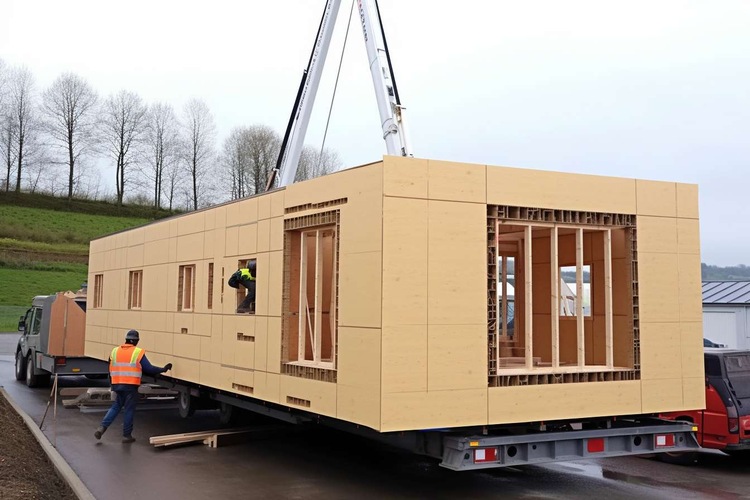Construction jobs in the UK: a clear guide to opportunities and conditions
The UK construction industry remains a vital sector offering diverse career paths across multiple trades and skill levels. From hands-on roles requiring physical skills to management positions demanding strategic oversight, construction provides employment opportunities for workers at various stages of their careers. Understanding the current market conditions, typical roles available, and industry requirements helps potential workers make informed decisions about entering or advancing within this essential sector.

What drives demand for construction workers in the UK in 2025?
Construction worker demand in 2025 reflects several key market factors. Infrastructure projects, housing development initiatives, and commercial construction continue to create employment opportunities across England, Scotland, Wales, and Northern Ireland. The industry faces ongoing skills shortages in specific trades, particularly among qualified tradespeople such as electricians, plumbers, and specialist craftworkers.
Government investment in transport infrastructure, renewable energy projects, and housing development programmes maintains steady demand for construction professionals. Brexit-related changes to labour migration patterns have also influenced workforce availability, creating opportunities for UK-based workers to fill roles previously occupied by European Union workers.
Which typical roles exist in the construction industry?
Construction offers employment across numerous specialised positions. Bricklayers construct walls, foundations, and structural elements using traditional masonry techniques. Carpenters work with timber frameworks, install fixtures, and create custom woodwork for residential and commercial projects. General labourers provide essential support across construction sites, handling materials, site preparation, and basic construction tasks.
Site managers oversee project coordination, ensure safety compliance, and manage teams of tradespeople and contractors. Additional roles include electricians, plumbers, roofers, scaffolders, crane operators, quantity surveyors, and project coordinators. Each position requires specific skills ranging from manual dexterity and physical fitness to technical knowledge and leadership capabilities.
What are working conditions and average pay rates for construction jobs?
Construction work typically involves outdoor environments with varying weather conditions throughout the year. Workers often start early morning shifts, usually between 7:00 AM and 8:00 AM, with standard workdays lasting eight to nine hours. Physical demands include lifting heavy materials, working at heights, and operating machinery or tools for extended periods.
Pay rates vary significantly based on experience, location, and specialisation. General labourers typically earn between £18,000 and £25,000 annually, while skilled tradespeople such as bricklayers and carpenters earn £25,000 to £40,000 per year. Site managers and project coordinators command higher salaries ranging from £35,000 to £55,000 annually. London and southeastern regions generally offer higher wages to offset increased living costs.
How do safety standards and legal requirements apply on UK building sites?
UK construction sites operate under strict health and safety regulations enforced by the Health and Safety Executive. All workers must complete basic safety training before beginning work, including understanding personal protective equipment requirements, hazard identification, and emergency procedures. Hard hats, high-visibility clothing, steel-toed boots, and safety harnesses represent standard equipment requirements.
Construction sites require regular safety inspections, risk assessments, and compliance with Construction Design and Management Regulations. Workers have legal rights to refuse unsafe work and report hazardous conditions without facing employment consequences. Employers must provide adequate training, maintain safe working environments, and ensure proper equipment maintenance.
| Role Category | Annual Salary Range | Experience Level |
|---|---|---|
| General Labourer | £18,000 - £25,000 | Entry Level |
| Skilled Tradesperson | £25,000 - £40,000 | Intermediate |
| Site Manager | £35,000 - £55,000 | Experienced |
| Project Manager | £45,000 - £70,000 | Senior Level |
Prices, rates, or cost estimates mentioned in this article are based on the latest available information but may change over time. Independent research is advised before making financial decisions.
What opportunities exist for training, apprenticeships, and upskilling in construction?
Construction apprenticeships provide structured pathways combining practical work experience with classroom learning. Popular programmes include carpentry, electrical installation, plumbing, and bricklaying apprenticeships lasting between two and four years. Apprentices earn wages while learning, starting around £4.81 per hour during their first year before progressing to full trade rates.
Further education colleges offer construction-related qualifications including NVQs, City & Guilds certifications, and BTEC diplomas. Many training providers deliver courses in specific areas such as scaffolding, crane operation, or health and safety management. Experienced workers can pursue advanced qualifications in construction management, surveying, or specialist technical skills to progress into supervisory or consultancy roles.
The construction industry offers stable employment prospects for individuals willing to develop practical skills and adapt to evolving building techniques. While physical demands and weather exposure present challenges, competitive wages, clear career progression paths, and diverse role options make construction an attractive sector for many workers. Success depends on acquiring relevant qualifications, maintaining high safety standards, and staying current with industry developments and technological advances.




